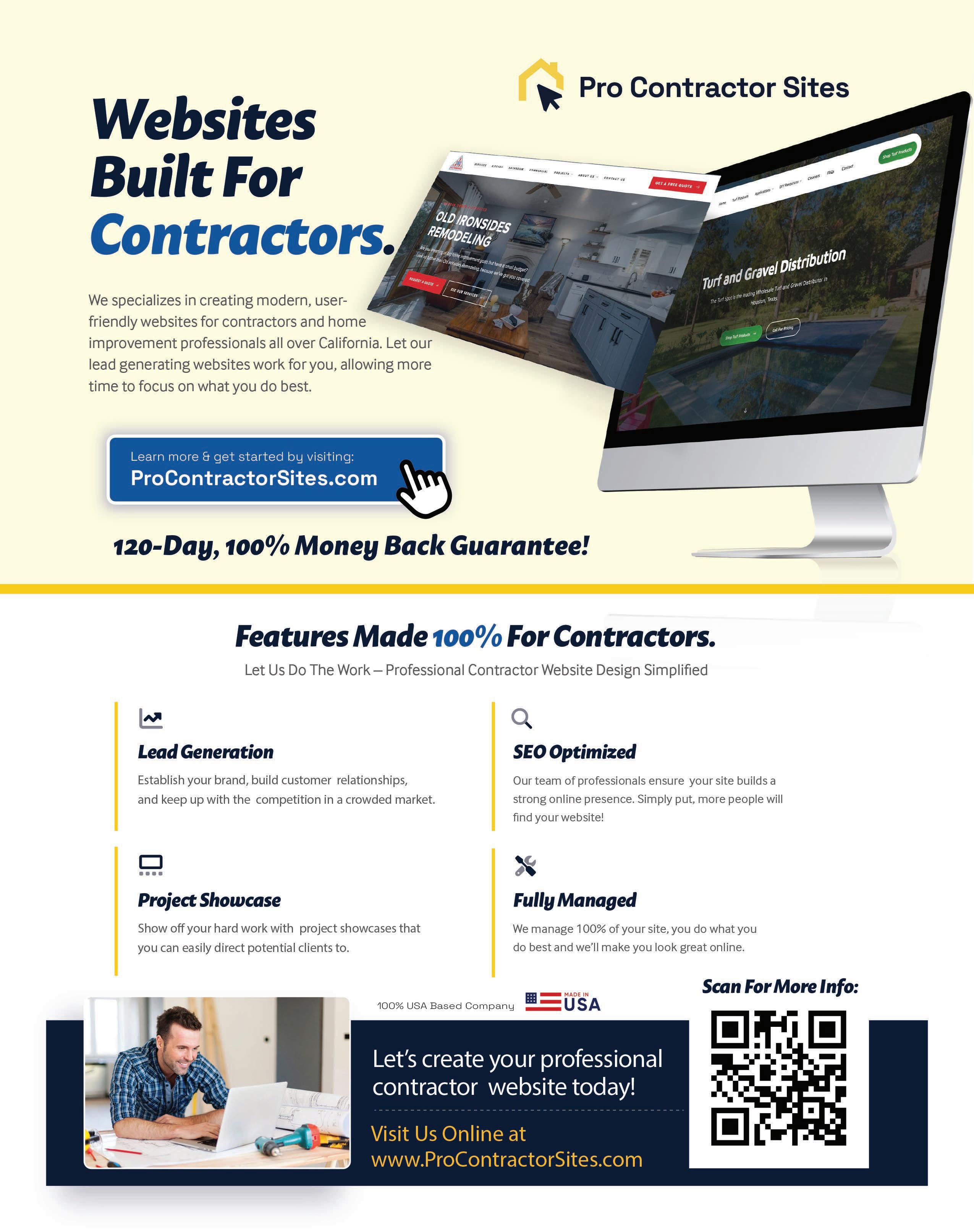





















































































(BPT) - As temperatures turn cooler, it might seem premature to think about springtime outdoor projects, but when it comes to planning a spring deck build, now is actually the perfect time to start. The fall and winter months provide an ideal window of opportunity to lay the groundwork for a successful and stress-free spring deck construction project. Here are some key steps and considerations to ensure your new deck will be ready to enjoy when the flowers start to bloom.
1. Define your vision
Every successful deck project begins with a clear vision. Spend some time this fall and winter envisioning your ideal deck. Consider its purpose - will it be a space for outdoor dining, relaxation or entertainment? Think about the deck’s size, shape and design elements. Gather inspiration from home improvement magazines, social media platforms and websites like Decks.com to help refine your vision. Then, utilize online tools, like those offered by the outdoor living experts at Trex, to bring your vision to life. Digital tools, such as their AR Visualizer and Deck Designer, can help to further define details. You can also find a wide array of ready-made deck plans online that offer ideas and inspiration.
2. Lock in labor
One of the first things you’ll need to decide is whether you plan to build the deck yourself or hire a professional. If you have the skills to DIY, take advantage of online resources, like Trex Academy, for expert tips and step-bystep instructions to help get the job done. If you plan to work with a contractor, fall is an excellent time to start the vetting process. Quality deck builders are often in high
demand and tend to book out months in advance. Securing a contractor in fall ensures you’ll have a skilled professional ready to begin work when the weather allows in the spring.
3. Plan for permits
Deck construction often requires permits, depending on your local building codes and neighborhood associations, if applicable. Take advantage of the fall and winter months to research local building codes and obtain any necessary permits and approvals. This process can be timeconsuming, so getting a head start will ensure that you don’t face any unexpected delays come spring.
4. Set your budget
Setting a budget early gives you time to make any necessary adjustments and ensures you won’t be caught off guard by unexpected costs once installation begins. Be realistic and consider all potential expenses, including labor, permits, substructure materials, decking, railing and any additional features or amenities you might want to include, such as lighting, an outdoor sound system or an underdeck drainage system. Online resources like the Trex Cost Calculator can help to ensure your vision is financially feasible. Simply answer a few questions about your space, like the material you plan to use and the deck dimensions, to determine an estimated price range for your project.
5. Research materials
The choice of materials for your deck is crucial as it directly impacts both the aesthetics and longevity of your outdoor space. Fall is an ideal time to research the range of available options. Consider factors like durability, maintenance requirements and sustainability when making your decision. Trex composite decking, for instance, is made from 95% recycled and reclaimed materials and never needs to be sealed or refinished like wood. The brand’s latest innovation, Trex Transcend Lineage, even features heatmitigating technology that keeps the boards cooler under the sun than other composite offerings. Many above-ground decks require railing, so be sure to take that into account as well. Railing options are myriad and the costs vary widely, so planning ahead ensures you have time to make the choices that are right for your project and your budget.
Planning ahead for a spring deck build during the fall and winter months is a wise decision that can save you time, money, and stress in the long run. By following these steps, you’ll be well-prepared to embark on your deck construction project when the warmer weather arrives. With careful planning and attention to detail, your dream deck will soon become a reality, providing you with a beautiful and functional outdoor space to enjoy for years to come. For more outdoor living inspiration, visit Trex.com.



(BPT) - Cool spots. Warm spots. Rooms that smell musty. A system that seems to perpetually be cycling on and off. Any of these issues (and more) may have you doubting your HVAC system ... and wondering if it’s time for a replacement. New equipment is a significant investment so it’s important to consider whether other issues could be causing HVAC havoc in your home. How can you determine if new HVAC equipment is the best solution for what your home needs?
An HVAC contractor who understands how the components of a home’s heating and cooling system work together is key to supporting your home’s comfort and energy efficiency. Here are six questions you can use to get the conversation going and help evaluate whether an HVAC contractor is the right fit to solve your home comfort issues.
1. What might be causing the problem?
Whether you’re experiencing comfort issues, a high electric bill or a system that can’t keep up, you shouldn’t assume the problem is your AC unit or furnace. A knowledgeable HVAC contractor trained to care for a home’s air should be able to present you with a few possibilities but will only confirm the causes after a thorough inspection. There’s a difference between being experienced with typical issues and jumping to conclusions.
2. What parts of my home will you be evaluating?
Various components of the HVAC work as a system, so it is important that a contractor does not just check the air conditioning unit or thermostat. That means various components depend on one another. An issue in one place - like a poorly insulated attic or even a dirty furnace filter - can put stresses on other areas (such as making a system run too frequently). Your HVAC contractor should be gathering all of the information necessary to make a proper diagnosis. Their inspection should always include a look around the attic.
Problems with attic ductwork - like insufficient insulation or holes, leaks and loose connections in ductwork - can lead to issues throughout a home. The inspection process should be comprehensive - so your decision can be an informed one.
3. What if you determine the problem isn’t my equipment (or it’s more than my equipment)?
Your HVAC contractor should be prepared to service all aspects of your HVAC system. This includes things like properly sealing or insulating ductwork, ensuring the attic is properly insulated, and, yes, repairing or replacing furnace and AC units when required. They should be ready with holistic solutions that may touch multiple components - and the “box” might not even be on the list.
4. What’s your expertise in HVAC issues beyond the unit?
Many of us assume our HVAC contractors are experts in the equipment they sell and service, but how do you know if they’re experts in the other components of a system, such as ductwork and insulation? Owens Corning® Certified AirCare® Professionals receive special training and tools that support a whole-home approach to HVAC solutions. They have the skills and equipment to properly evaluate your HVAC issues and correct them with trusted materials from Owens Corning®.
5. What difference will your recommendations make in my home?
Your HVAC contractor should be able to explain to you how any recommended repairs, replacements and additions will help solve your issues. For example, sealing leaky ducts may address problems with excess dust in your home. Proper attic insulation helps keep your living spaces warm in winter and cool in summer. A properly trained contractor can - and should - explain these principles to you, so you understand the gains in efficiency, comfort and air quality you can expect after implementing their recommendations.
6. What questions do you have for me?
Because a qualified HVAC contractor is the expert, he or she should have questions for you about what you’re experiencing in your home, the history of your system and whether your family has any special concerns, like allergen levels. A great contractor may even follow up with more questions post visit as they’re creating a thorough set of recommendations for you.
Whenever a contractor leaves your home, you should feel more informed. A qualified contractor, like an Owens Corning® AirCare® Professional, can open your eyes to ways to improve your entire home’s comfort, function and efficiency and will welcome these questions and many more.


